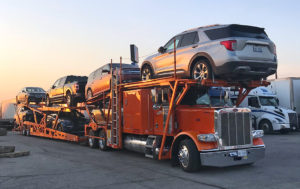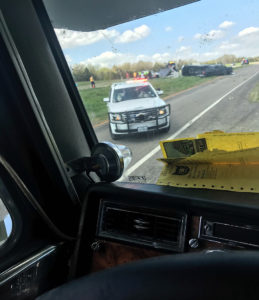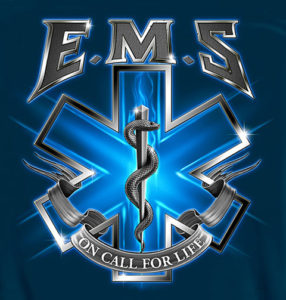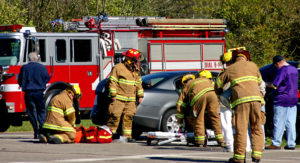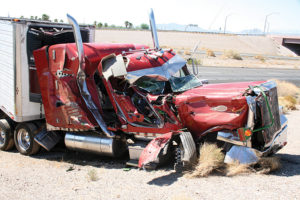Oh happy days… or something like that. It’s springtime and once again I have survived another long and eventful winter season. I am so tired of ice, snow, and foul weather. It could be August before I get defrosted. So, let’s get in step and spread some sunshine around the 10-4 Nation. Hopefully, the states that have been in lock-down are now starting to lessen their grip and some of the mask mandates are gone, too. Time will tell. But this is not an article about being prepared for a coming season or more virus outbreaks.
At the time of this writing, I’m setting in the parking lot of Interstate Warehouse in Franklin, Indiana. This far north it is still usually winter in April. However, this is the first time in a couple months I have been able to enjoy the warm sunshine here in the Midwest. I grabbed my red lawn chair out of the side box and a bottle of water, reminding myself not to forget Aunt Barb’s sternly worded note: “Mr. Mitchell, don’t forget your hat!” I always know she means business when I’m “Mr. Mitchell” and not Dennis. It’s a good thing she is always watching out for my health since, like many of our readers, I don’t.
Health smelth! What’s this got to do with trucking? Well, let’s see if I can make the case for driver preparedness. Now, I’m not as young as a lot of the drivers we see on the road nowadays, but many if not all these suggestions will still be helpful. First, I will give a little background why I wrote this article.
A very good and longtime friend of mine (I won’t mention any names but let’s call him Edward) got hurt 1,000 miles from his home base while he was working by himself in a receiver’s parking lot. I think all of us have been there. The severity of your injury will determine your need for first aid, or not. In this case, it involved a fall from the top deck of a car carrier, down under a vehicle, and then on to the portable decking below. Did I mention this guy is no spring chicken? He’s not exactly ancient, either, but what happened after his fall is the subject for today.
Yes, he was injured seriously – bad enough to need transport and emergency room repair. Any head injury can cause memory failure, even if it’s only short term, which may cause you to not get the simplest information right. You may remember who you are but get your blood type wrong or the medication your taking incorrect, and these basic details can cause harm to you if the attending medical agent doesn’t know them.
How do you ensure that a medical professional treating you gets the correct and most up to date information? You have seen me refer to the six “P”s before (prior preparation prevents particularly poor performance). By taking measures that put enough correct information readily available for the proper people to make decisions for your safety, you increase your chances of getting the help you need. For starters, ask yourself if you know your blood type. How about the phone number of your next of kin when they are at work? You don’t know, do you? Now, put yourself in a trauma situation, and the chance of you messing up is even greater.
Now that we have established the need for a plan, what information should you have available? First, be careful how much sensitive information you give out, and to whom. Let’s start with who should have this “sensitive and vital” information, besides the driver. If you are married, your spouse should have a copy and be involved in the gathering and preparations of it. However, if this person tends to panic easily, then they should name someone else who will remain calm and is able to communicate clearly to any emergency personal if contacted. I know there are plenty of independent drivers out there who are not attached to anyone, but if you don’t have a designated “next of kin” then I would suggest you contact your safety department for their protocol in these matters. Most companies have some sort of database they can use when contacted by police or emergency personnel.
I want to make sure everyone knows I am not a lawyer, and I don’t play one on the radio, but I think all of you should seek counsel on this matter. Start at your company personnel office and ask their advice. If you don’t get help there, then make a plan of your own.
I’m a one-truck operation, but I have a plan. In the event I’m hurt and still able to think straight or still mobile, I carry enough safety information in the truck to assist emergency personnel. There are already protocols for how to handle your bill of lading in the event of an accident (see Hazmat requirements), so use the same process for handling your contact numbers. I still run paper logs, so in my logbook there is a place for dispatch phone numbers and also ICE (In Case of Emergency) numbers. I think most phones also have the ability to enter your name, address, and contact information, for emergency uses.
Now that we know where to place our info, what should we put in full view of the public? Let’s start with your medical info: name of your doctor and their phone numbers, blood type, and age (your age, not your doctor’s). I carry a copy of my medical card and my drivers’ license, along with contact numbers for dispatch and my spouse (next of kin), all on one sheet of paper. I keep it readily available. Included on it is also my blood type and, since I don’t take medication, I state that to aid EMTs when assistance may be required. It can be difficult enough to deal with a broken limb or lacerations on your head, but any severe cut where they need to stop or slow the flow of blood, it is essential they know if you are on blood thinners or meds that could counter their progress.
I don’t know much about meds, but I am informed they (medical staff and EMTs) could use the correct name and brand of your meds, including the dose, and anything pertaining to its use. Once again, contact your medical practitioner and seek counsel as to what they deem appropriate. I also include a visual aid (photo) for quick identification. In the event you’re a team operation or there are two people in the same truck, this will help to identify who is who.
Most of us carry a wallet with our drivers’ license, but what do you think will happen if you become separated from it? This can happen easy enough if they need to remove your clothing to administer aid. Also, how often do you toss your ID on the dash because it is uncomfortable in your pocket? Think about this – in the event you roll over or get hit head-on, what happens to your identity? There’s a real good chance it goes out the window with everything else. Keep your ID in your pocket!
Let’s get back to my friend who fell on the truck. We think about our medical needs, but how about what happens to your equipment if you, the driver, needs to be hospitalized? Who is going to secure your stuff? Don’t count on the police or the towing company making a great effort – it is not their job. Besides, do they even know what to do if you are hauling some freight that is unusual? They (the tow company) will drag your truck down to the impound yard and drop it. That leaves you and your insurance company responsible for any additional damage and/or theft.
If you become incapacitated, someone needs to contact your dispatch and/or broker. The police don’t have to. Their job is to clean up the mess and reopen the road. That means calling a wrecker and towing the problem away. What happens when you are released from the hospital but unable to drive? How are you going to get home? What about the truck? When we develop an emergency plan, it should include people to contact who are informed about our equipment and can provide some options for continuing the load, if possible.
In the case of my friend Edward, his load was not damaged, and his truck was still usable. He, however, was not able to continue on with it. They had a local outfit move the load to a different trailer and relocated the power unit to a secure area. He was flown back to his home to recuperate until he was able to safely return to work. This was a case that involved special driver skills and pre-planning due to the value of his freight. Something as simple as having the police check the fuel level in a reefer tank can mean the difference between a simple personal injury claim that is covered by Worker’s Comp. and an $800,000 load of seafood becoming a freight claim because it ran out of fuel.
Now is the time to get prepared. Remember, “Your success is but time stolen from failure.” Drivers, you work hard enough for your money, don’t let a simple lack of information derail your futures. Take a few minutes to see how much random information you are carrying right now, then try to find a method of consolidation that will aid you should something happen. Consider it a mini vacation with plane fare and hotel rooms included. Just an idea – set aside some emergency funds to cover such an event. And remember, you may not be the one flying out. Someone may need to fly in to collect you or your equipment.
The more information you have the better your chances for a positive outcome. My friend and I both agree, even if you live in Las Vegas, never gamble on your future – because the odds are always against you. Go ahead and shake them bones and roll ‘em one more time. Just be sure you can cover the bet if you lose, 10-4!


